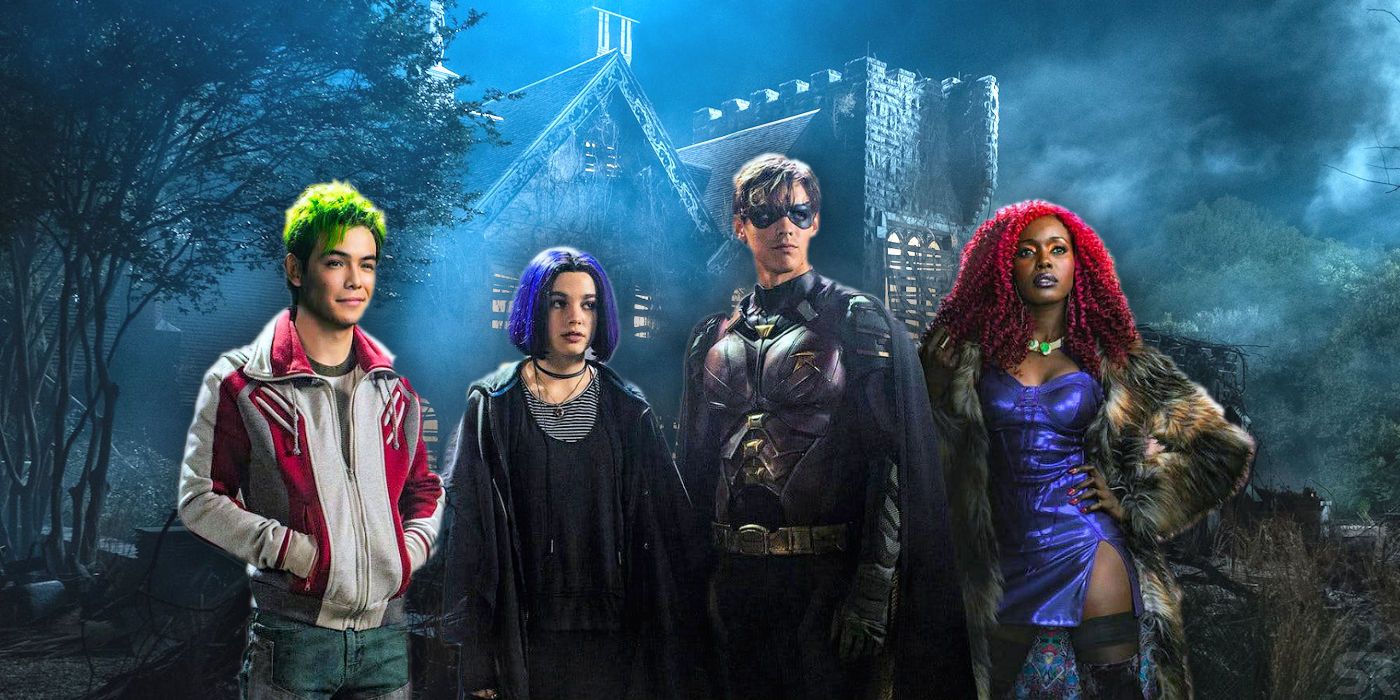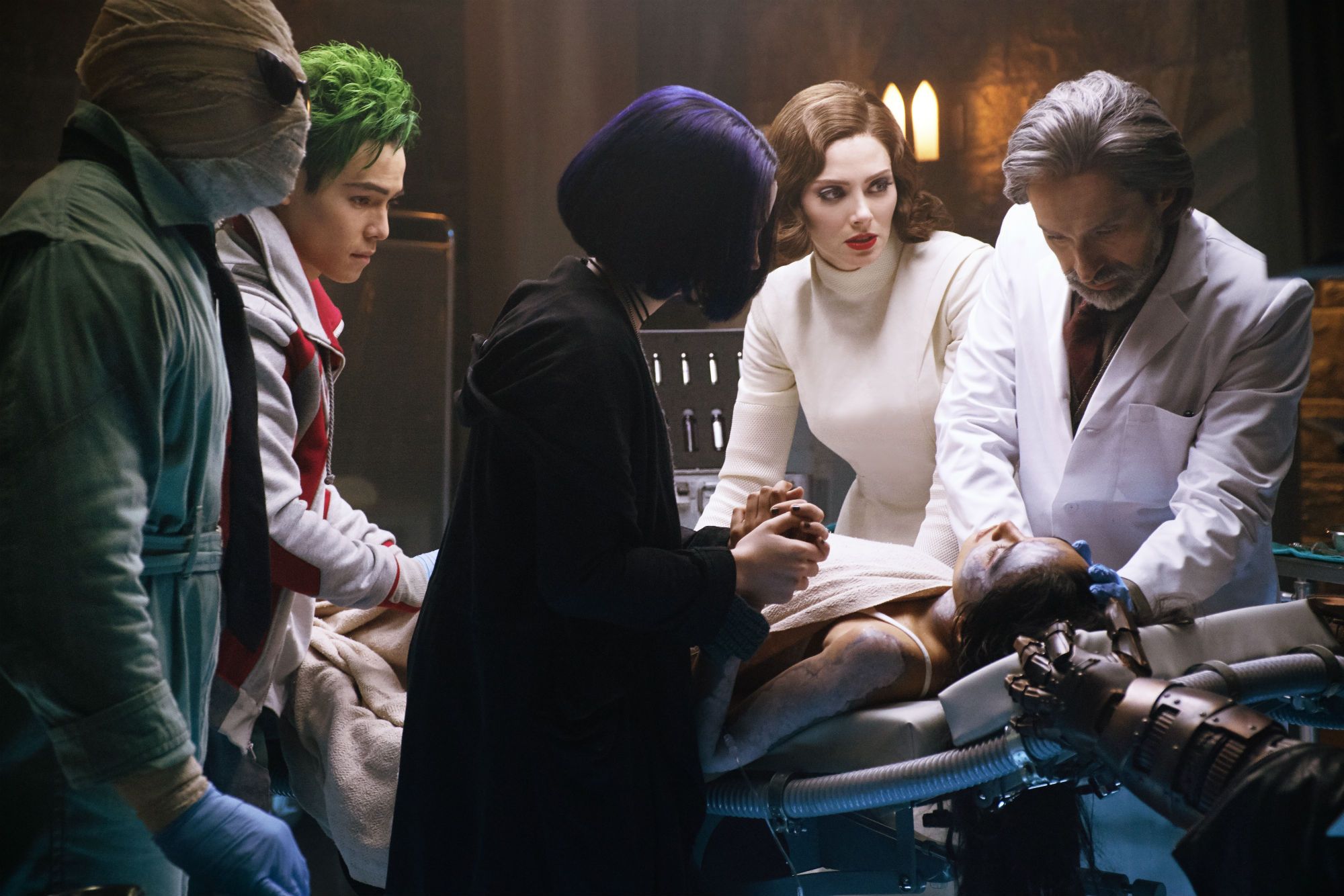DC Universe's Titans TV show isn't necessarily bad, but it can certainly be better - and Netflix's Haunting of Hill House is proof of that. After launching their digital platform/streaming service on Batman Day in September, DC Entertainment debuted their first-ever live-action TV show based on the iconic Teen Titans superhero team from DC Comics. It consists of Dick Grayson/Robin (Brenton Thwaites), Rachel Roth/Raven (Teagan Croft), Kory Anders/Starfire (Anna Diop), and Garfield Logan/Beast Boy (Ryan Potter).
Of course, there are other Titans characters in the mix, but it's taken four episodes to finally unite the core Titans superhero team. If Titans season 1 released all at once, similar to what Netflix does with their TV shows (e.g. Daredevil, Stranger Things), then the slow burn aspect wouldn't be as laborious to get through. But the fact that Titans releases as a weekly series, and still competes with the likes of Netflix, Hulu, and Amazon Prime, means it needs to be better than the competition. Titans' strategy isn't inherently wrong, though; it's just that it could've been done more adequately.
Related: DC's Titans Did Doom Patrol And Hawk & Dove The Wrong Way Around
Netflix's Haunting of Hill House, which is based on the novel series of the same name by writer Shirley Jackson and was adapted for television by filmmaker Mike Flanagan, is structurally set up in the same way as Titans. Each TV show contains a group of people who must come together to face a common threat in the end, and each episode focuses on a different character (or set of characters, in Titans' case), but Haunting of Hill House manages to do everything better than Titans.
Even though Haunting of Hill House presents its story in a more intriguing way (which could, of course, just be a byproduct of the source material), two key aspects of Netflix's TV show compared to DC Universe's are how the team is introduced and how they ultimately come together in the end. Sure, all the characters in Haunting of Hill House know each other, but unlike Titans, in which all the characters seemingly by happenstance, in Haunting of Hill House, a particular event kickstarts the season's overarching narrative. And then, from that point onward, the first half of the season shows what was happening in each character's life up until then.
If Titans followed a similar structure to Haunting of Hill House, the DC superhero team could've been united by the end of episode 1 and then the next handful of episodes could've shown how the core members got to that point, with the second half of season 1 focusing on what happens afterward, after they had already united. It allows Titans season 1 to still be an origin story, like how executive producer Geoff Johns wanted, while also providing instant gratification in this day-and-age of streaming television.


